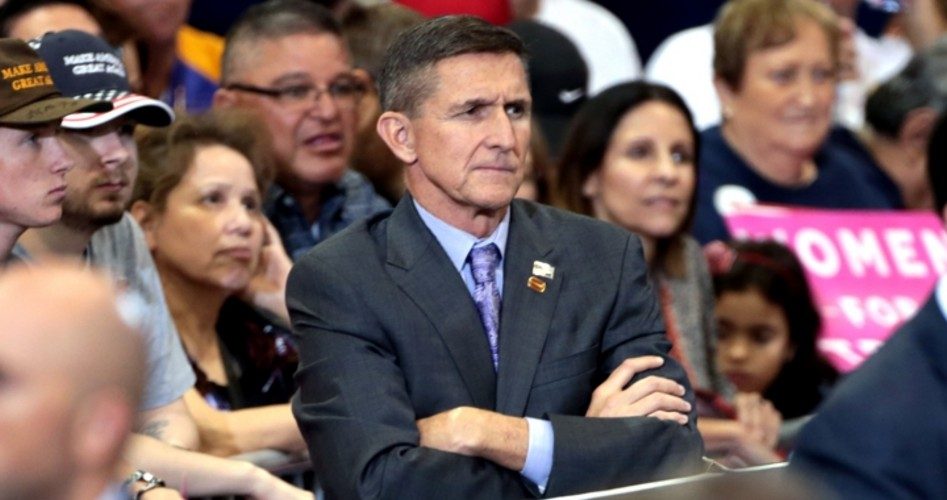
Former judge John Gleeson, whom Judge Emmet Sullivan asked to respond for him in support of continuing the prosecution against former National Security Advisor General Michael Flynn, turned out 86 pages explaining why the case against Flynn should be continued.
For three years, Flynn has been targeted because he had served in the Obama administration and had seen with his own eyes its corruption. When President Donald Trump asked Flynn to come aboard as his national security advisor, Deep State insiders knew they were in trouble.
They moved Heaven and Earth to find a way to get rid of him. They found a way: They entrapped him into agreeing to a plea agreement — admitting that he lied to FBI agents — in order to protect his son from their harassment.
In court, Flynn said, “I should have stood my ground firmly [when the plea agreement was offered] for what I knew to be the truth — that I did not lie to the agents.… Regretfully, I followed my lawyers’ strong advice to confirm my plea even though it was all I could do to not cry out ‘no’ when this Court asked me if I was guilty.”
When evidence surfaced in April that that interview was conducted even after top officials at the FBI knew they had no case against Flynn but pursued him anyway, the Department of Justice filed a request to dismiss the case against him.
Ordinarily, this would have been the end of it, and Flynn could begin, after three years, to get on with his life.
But this is no ordinary time. U.S. District Court Judge Sullivan wanted to continue the case against Flynn. He invited various “friends of the court” to support his contention. When Flynn’s new lawyer, Sydney Powell, saw what was afoot she demanded that the Appellate Court force Sullivan to dismiss the case.
Instead Sullivan asked former Judge John Gleeson to respond in his place. Gleeson wrote that Flynn could not withdraw his guilty plea:
(bit)A defendant cannot be permitted to abuse this solemn and careful process by opportunistically entering a plea, gauging the reaction of the court, and then, if dissatisfied with that reaction, falsely claiming that [his] initial plea was a lie — all in an attempt [either] to require further court proceedings, or escape a conviction.
Such self-serving gamesmanship obstructs the administration of justice by vitiating [destroying] the plea process and wasting courts’ and prosecutors’ time and resources.
The court has its own compelling interest, independent of the Executive Branch, in ensuring that parties [such as Flynn] do not abuse and manipulate its essential functions….
Flynn has indeed committed perjury in these proceedings for which he deserves punishment….
The facts of this case overcome the presumption of regularity. The Court should therefore deny the Government’s motion to dismiss, adjudicate any remaining motions, and then sentence the Defendant.(eit)
In other words, Flynn lied, and he should pay for it, even if the prosecutors pressured Flynn to obtain his agreement to plead guilty to lying.
Flynn’s attorney, Sidney Powell, filed papers back in January to withdraw his guilty plea, saying that the federal prosecutors acted in “bad faith” and had broken their end of the bargain when they sought prison time for him.
That’s what was missing from Gleeson’s 86-page dissertation: an agreement made by a person under duress is invalid.
It’s now up to the Court of Appeals to decide the matter. On Friday it will begin to hear arguments from both sides — from the judge who wants to continue to prosecute, and Flynn who wants the madness to end.
Image: Gage Skidmore/Wikimedia Commons
An Ivy League graduate and former investment advisor, Bob is a regular contributor to The New American, writing primarily on economics and politics. He can be reached at [email protected].
Related articles:
Judge Sullivan Responds to Appellate Court, Will Continue Case Against Flynn
Flynn Trial Judge Hires High-powered Attorney to Defend His Unprecedented Actions
Flynn Wants Appeals Court to Force Judge to Dismiss Case Against Him



